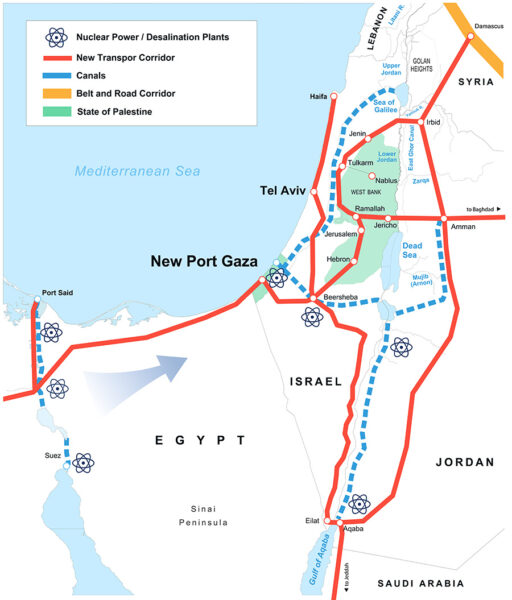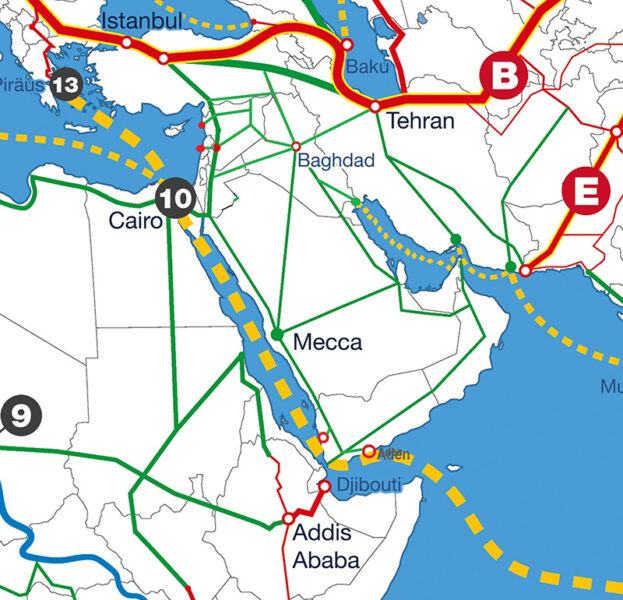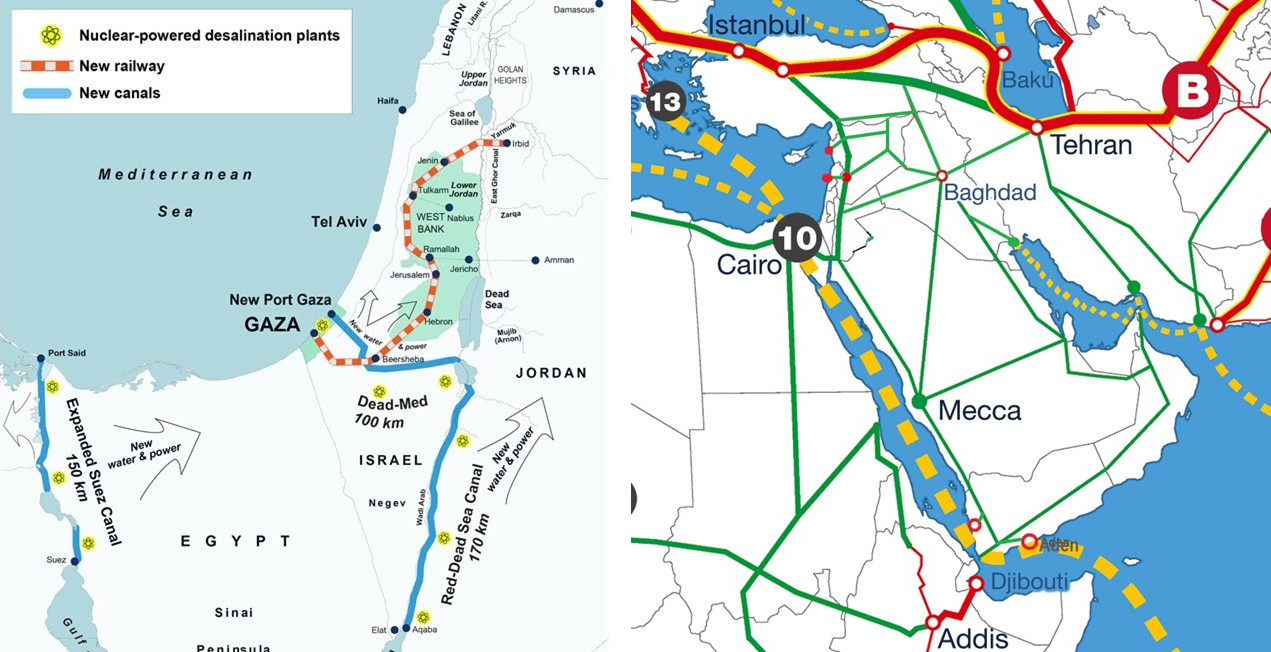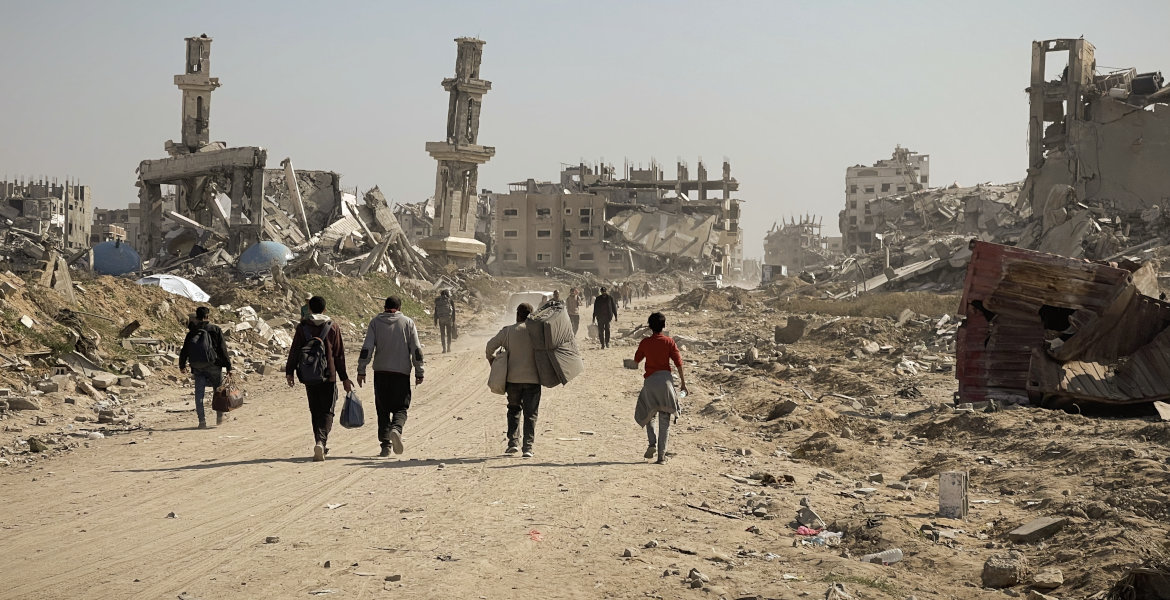The absurd statements made by U.S. President Donald Trump on relocating the Palestinians from Gaza, followed by the insults directed by Benjamin Netanyahu to some important Arab countries, have opened a window of opportunity for the Arab countries and the Global South to put forward an alternative plan that is realistic, humanitarian, and compatible with international law to save the Palestinian people in Gaza and the West Bank, resolve the Palestinian issue, and establish peace and development in the West Asian region (erroneously called the Middle East).
But this requires guarantees and cooperation from international powers, most importantly the US Administration, but not alone. China, Russia, the BRICS countries, that were joined this year by Egypt, the UAE, Iran and Ethiopia (and potentially Indonesia), and many other countries in the Global South have risen economically, militarily and politically today.
US Secretary of State Marco Rubio recently recognized that the era of unipolarity is over and has been replaced by an era of multipolarity. This historical fact must be exploited by Arab countries, not to play the East against the East, but to build bridges through Arab countries between them.
First, it is imperative to uphold the two-state solution and the right of the Palestinian people to establish their own state with East Jerusalem as its capital on Palestinian lands in accordance with UN Resolution 242 of 1967 and the Arab Peace Initiative of 2002. However, for this state to be sustainable, there must be an economic policy for reconstruction and development and to compensate the Palestinian people and their younger generations for the tragedies and horrors they have faced so far.
The gates of humanitarian relief must be opened immediately to prevent hundreds of thousands of Palestinians in Gaza from dying of hunger, immunodeficiency and infectious diseases due to water contamination and lack of sanitation and health care.
Perhaps this is what the extremist Israeli government is counting on to drive the Palestinian people out of Gaza voluntarily. We must remember what happened in Iraq after Desert Storm in 1991, where nearly one million Iraqis, half of them children, were killed not by Anglo-American bombing, but by the consequences of the destruction of basic infrastructure and the economic blockade that led to malnutrition and the spread of diseases.

The Oasis Plan
As for the long-term plan, we are pleased with the statements made by the Egyptian government that there are two plans that will be discussed with the Arab countries before the upcoming summit at the end of this month.
While we do not know the details of these plans, we would like to put forward a set of ideas within what we call the "Oasis Plan", an idea launched by the late American economist Lyndon LaRouche in the 1970s and based on the concept of "peace through development", where there is no peace without development and no development without peace, and where the two issues must go in parallel.
This is what did not happen in the Oslo Agreement, as the economic decisions in Annexes III and IV were neglected, albeit insufficient, and the focus was on political solutions only. This is what prompted LaRouche to predict the failure of the Oslo Accord and to warn of the role of the Israeli extreme right and its supporters from the Christian Zionist movements in the United States and Britain in destroying any foundations for peace and assassinating and imprisoning its advocates on both sides.
The Oasis Plan is to address the issues of water shortage and desertification in the region, the lack of modern basic infrastructure for development, and the lack of agricultural and industrial capabilities despite the existence of natural resources, geographical location, financial and human resources in the region but are unevenly distributed.
The plan sees the issue of reconstruction in Gaza, Palestine, and the entire region (especially Syria, Lebanon, Iraq, and Yemen) in a larger context. It is not possible to find solutions to local issues whose causes are global.
The plan in its new form developed by this author and his colleagues at the Schiller Institute in the last two years evolves in the context of the Belt and Road Initiative or the New Silk Road and the connectivity of West Asia’s infrastructure and its utilization as a bridge between Asia, Europe and Africa on the one hand and the Indian Ocean and the Mediterranean on the other.
This is done by building development corridors throughout the region consisting mainly of transportation lines such as railways, highways, water, electric power, oil and gas pipelines, and building new agricultural and industrial zones and cities on both sides of these development corridors, which will extend to Palestine (from Jordan to the West Bank, to Gaza, to the Mediterranean Sea, and from there to Egypt).

Water and agriculture
The plan first aims to solve the issue of water shortage, underdeveloped agriculture and desertification. The amount of water naturally available in this part of the region, especially the Golan Hights, South Lebanon, and the West Bank, most of which is appropriated by Israel, cannot be relied upon, even if it were hypothetically divided fairly. There is a need throughout the region to increase the amount of water available exponentially, and this can only be done through seawater desalination.
There are two major projects for desalination:
First: Building two canals to the Dead Sea, one from the Red Sea and the other from the Mediterranean. The purpose of these two canals is not for maritime transportation, as is rumored, and they can be replaced by large diameter pipes. Rather, their purpose is to take advantage of the huge difference in elevation between the Red and Mediterranean Seas on the one hand and the Dead Sea on the other. The Dead Sea is four hundred meters below sea level. The rapid flow of water in the two channels sloping towards the Dead Sea can be used to generate energy for desalination and other uses.
Second: In the future, nuclear plants with small modular reactors could be built to desalinate water and produce electricity. Similar plants powered by either natural gas or nuclear power should be built in the future on the Mediterranean coast and along the Suez Canal as well.
Agriculture must be significantly developed, using modern irrigation and seed development techniques in the Palestinian territories and in neighboring Arab countries to achieve food security and economic, political, and stability because a large part of the Arab countries’ resources are wasted on importing foodstuffs.
Social and political shocks occur in Arab countries whenever there is a global crisis that leads to a rise in food prices, as happened in 2008 and 2009 and after the outbreak of the Ukraine war in 2022. Therefore, the cultivation and afforestation of dry and desert areas must be expanded throughout the Arab region.
Industries
Lyndon LaRouche proposed at an international conference on oil and gas in global politics in Abu Dhabi in May 2002 that oil-producing countries should build nuclear power plants both for water desalination and also to use their oil and gas resources for petrochemical, chemical and other industries that increase the added value of crude oil and gas exponentially.
A few years later, the UAE launched its own peaceful nuclear program and completed the construction of four large-scale nuclear reactors in cooperation with South Korea last year. Egypt is currently building the Dabaa nuclear plant in cooperation with Russia.
China’s industrial and technological progress has also enabled it to localize some advanced industries in Arab countries such as Saudi Arabia, Oman, the United Arab Emirates, and Egypt. All Arab countries should build industrial parks and special economic zones, in addition to establishing industries in Gaza and the West Bank, taking advantage of their geographical location, availability of raw materials and labor, and proximity to markets.
The construction of a world-class port in Gaza, an airport, and rail and metro line should be implemented. The tunnel systems that were used for war fighting can be replaced by a metro system in time of peace.
Financing
We cannot rely solely on foreign aid to sustain the economic situation of the Palestinian people and their future state. The Oasis Plan includes the establishment of an Arab or regional development bank modeled after the Asian Infrastructure Investment Bank (AIIB) with a capital of $100 billion.
The Arab countries should collectively establish such a bank. Its purpose would be not only to issue low-interest, long-term credits to finance basic infrastructure projects throughout the region, especially in Jordan, Palestine, Lebanon and Syria, but also to provide financial leverage for national development banks to be established, such as the Palestinian Development Bank (which was envisioned in the Oslo Accords but has not been established).
National banks would be able to finance local projects for housing, agriculture and industry. This would save poor Arab countries and the Palestinian people from relying on foreign aid with strings attached including political concessions.
Funding could in addition be obtained from the AIIB and through bilateral "oil-for-construction" and "oil-for-technology" agreements, where a small portion of the region’s oil and gas exports (5% to 10%) could be used to finance the proposed Arab Development Bank and to obtain bilateral credits from oil and gas importing countries such as China, Japan, Korea, India, and European countries and utilize these credits in infrastructure, industry, and agriculture projects. We have explained this in detail in a previous article.
How can Gaza be rebuilt without relocating its population?
There are many simple solutions, but they need good organization and joint funding. For example, Asian countries, including China, have the capacity to manufacture small prefabricated mobile houses the size of a typical shipping container cheaply and quickly.
The Palestinian people in Gaza cannot continue to live in tents without experiencing all sorts of health, psychological and social issues. Communal sanitation facilities could be built around clusters of such housing along Gaza’s coastline, supplied with water, electricity and sewage treatment via floating power and desalination plants that are available in many parts of the world or can be built quickly. Likewise, field hospitals and schools must be built.
The Oasis Plan is a plan that, although it is regionally comprehensive and needs global consensus, is capable of finding solutions to even local and national issues. Its details can be expanded upon in collaboration with local planners and engineers to adapt it to the local situation of each region and country.
Our purpose in proposing the Oasis Plan is not to design precise policies for each country, but to develop a general but scientific and conceptual framework that reflects the economic, technical and political developments in today’s new world.
Hussein Askary
Vice-Chairman of the Belt and Road Institute in Sweden






